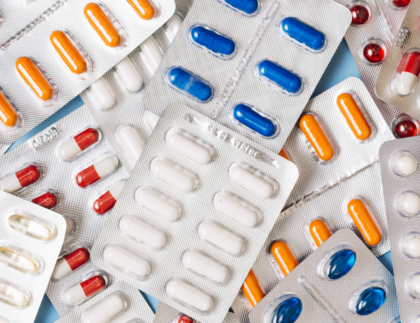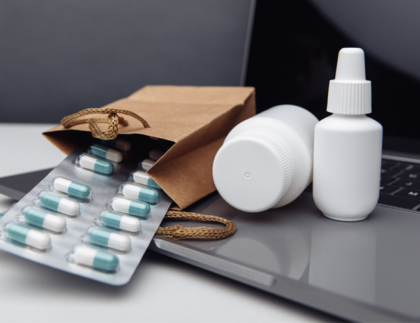
In the dynamic landscape of the pharmaceutical industry in India, the significance of innovation and secure packaging cannot be overstated. As the demand for pharmaceutical products continues to surge, driven by a growing population and increased healthcare awareness, the role of packaging goes beyond conventional containment. This blog explores the pivotal contributions of the key players in the Indian pharmaceutical packaging sector, shedding on the top companies in pharma packaging. Pack Time also unravels the fabric of the industry that not only safeguards the integrity of the medical products but also leads the charge in adopting cutting-edge packaging technologies.
Major players in the Indian pharma packaging sector
- 1. Amcor – Amcor plc is a supplier and manufacturer of specialty folding cartons and flexible packaging. The company is focused on making, reusable, lightweight, and prepared packaging using recycled content.
- Gerresheimer AG -Gerresheimer AG is a manufacturer of primary products for drug delivery devices and medication made of special-purpose plastic and glass. The company is one of the top 10 pharmaceutical industries with its headquarters in Dusseldorf.
- Origin Pharma Packaging – Origin Pharma Packaging is an innovative packaging company for nearly 60 years. The company has a portfolio of in-house manufactured components fostered by a holistic supply solution.
- Nelipak – Nelipak is a worldwide leading thermoforming company serving worldwide customers. The company is known for the development, design and manufacturing of an extensive range of thermoformed products.
- West Pharmaceutical Services – West Pharmaceutical Services is a leading company in manufacturing and designing the injectable pharmaceutical packaging system. Being the leader of innovation and high-quality solutions dedicated to the improvement of the health of patients across the globe.
Current packaging trends for pharmaceuticals
Here are some of the current packaging trends for the pharmaceuticals listed:
- Smart packaging – advancements in technology have enabled the development of smart packaging solutions and this package comes up with features like RFID tags, NFC chips, or QR codes to provide valuable information about the product, including authenticity, expiration dates, and usage instructions.
- Child-resistant and senior-friendly packaging – safety remains a top priority in pharmaceutical packaging design. Child-resistant packaging is also being refined with innovative closures and mechanisms that protect young children from accidental ingestion ensuring ease of use for adults. Similarly, the senior-friendly packaging aims to address the needs of older patients by incorporating features like easy-to-read labels, larger fonts, etc, to make sure that all the medications are safely accessible to all, regardless of age or physical abilities.
- Digital integration – as the world becomes interconnected, the integrations of digital technologies with pharma packaging are gaining their votes. QR codes and augmented reality AR can provide their patients with access to additional information, dosage reminders, and interactive instructions.
- Anti-counterfeiting measures – the pharmaceutical industry faces the challenges of counterfeit drugs, which pose significant risks to patient safety. To work on their issues, packaging innovations have been implemented to ensure product authenticity and traceability. Tamper-evident seals, holographic labels, and unique identifiers like serial numbers and barcodes are being incorporated into the packaging to enable verifications and track the product’s journey from the manufacturer to the distributor.
Trends Shaping the Future of Pharma Packaging.
- Automation can transform line and flexibility for the better - With the smaller, more complex batch requirements of personalized treatments and similar new therapies, automation offers the potential to enhance flexibility, ensure process reliability, and boost traceability. Keeping manual interaction with products and packaging to a minimum can prevent human error and reduce waste. Automated systems offer an exciting means to streamline supply chain management for package drug products, by enhancing track-and-trace capabilities. They can track and monitor inventory in storage and during transport, helping to reduce waste, improve efficiency, and even prevent the risk of counterfeit medicines entering the supply chain.
- AI can optimize manufacturing and packaging efficiency- Artificial Intelligence (AI) is already revolutionizing the pharmaceutical industry beyond drug discovery, extending its impact on manufacturing and packaging processes. By harnessing AI on production lines, companies can implement effective predictive maintenance, proactively replacing or repairing components before equipment failure occurs, thereby minimizing downtime and boosting productivity. Additionally, AI enhances inventory management, enabling more accurate forecasting of stock levels for finished drug products. In packaging, AI plays a crucial role in detecting defects, reducing waste, and mitigating risks to patient safety. Deep-learning AI models outperform traditional image processing techniques by adapting to changing environmental conditions, such as varying lighting intensities, resulting in increased packaging line speed, improved quality control, and precise product counting. Overall, AI contributes to the pharmaceutical industry's efficiency, reliability, and adherence to quality standards throughout the manufacturing and packaging stages.
- Blockchain can make serialization more effective - Blockchain, a secure information recording method, enhances efficiency in serialization by reducing the risk of system manipulation. While not mandated by U.S. law, blockchain can bolster product tracking security and accuracy. It holds the potential to address global supply chain vulnerabilities, foster collaboration, combat fraud, and ensure product authenticity. In a blockchain-enabled Internet of Things (IoT) supply chain, wireless sensors and GPS devices record real-time data, allowing consumers to scan unique serial numbers for comprehensive product information. However, reaping blockchain benefits requires companies to invest in software, hardware, and connectivity for robust product tracking from manufacturing to consumers.
Challenges and Solutions in a Pharma Company
- Regulatory Compliance:
- Challenge: Stringent regulations and compliance requirements can pose challenges for pharmaceutical companies, leading to delays and increased costs.
- Solution: Implement robust regulatory compliance management systems, stay informed about changing regulations, and invest in technology for streamlined reporting and documentation.
- Drug Development Costs:
- Challenge: High costs and long timelines associated with drug development.
- Solution: Embrace innovative technologies like AI for drug discovery, collaborate with research organizations, and explore partnerships to share research and development costs.
- Supply Chain Management:
- Challenge: Complex global supply chains that are vulnerable to disruptions, counterfeiting, and inefficiencies.
- Solution: Implement blockchain technology for transparent and secure supply chain management, use IoT devices for real-time monitoring, and establish contingency plans for supply chain disruptions.
- Data Security and Privacy:
- Challenge: Increasing concerns about data security and privacy in handling patient information and sensitive research data.
- Solution: Adopt robust cybersecurity measures, comply with data protection regulations, and regularly update security protocols to safeguard sensitive information.
- Competition and Market Access:
- Challenge: Intense competition and challenges in gaining market access for new products.
- Solution: Focus on innovation, build strong relationships with regulatory bodies, and employ effective market access strategies, including demonstrating the value of new drugs.
Conclusion
The research pharmaceutical industry remains beset with problems for most of which there does not appear to be an obvious solution. Although it has the exclusive rights to the sale of new drugs it is a patent life. Increasing the regulations leads to additional costs and longer development times which consequently reduces times to patent expiry, reducing risk tolerance in patient populations and regulatory bodies is leading to a lower success rate for marketing authorization approvals, cost pressures within national health services are leading to progressive downward pressure on prices, many people consider that the current research pharmaceutical business model is no longer sustainable, but no-one has yet come up with a better one.
However, because of the increasing domination of drug-development pipelines by biopharmaceuticals, we can be certain that the next generation of human pharmaceuticals will leave significantly smaller residues in the environment than those that result from the use of current medicines.



